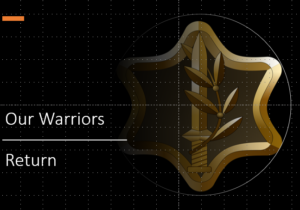There is often a misconception that leadership is the end-all and be-all of organizational success. However, the often-overlooked counterpart to effective leadership is followership. It is through followership that leaders can truly thrive and accomplish their goals. In this blog post, we will explore the concept of followership and its significance in the realm of leadership.
Understanding the Essence of Followership
At its core, followership is the conscious decision to support and contribute to the manifestation of a mutually defined purpose. It goes beyond blindly following directions; instead, it involves ascribing to a process and working tirelessly towards a future state. Unlike leadership, followership doesn’t encompass authority or influence over others. It’s a mindset that fosters collaboration, trust, hope, and cooperation within a team.
Exemplary, courageous followership uses mutual purpose as a bond between leaders and followers. It recognizes that effective leadership requires a strong and committed team, as leaders alone cannot achieve success. By aligning themselves with the leader’s vision, followers become indispensable in making that vision a reality.
The Dynamic Interplay of Leadership and Followership
Leadership, on the other hand, is a process where one unit influences others to act towards a shared vision, objectives, and goals. While leadership sets the direction, it is followership that ensures the journey towards that destination is smooth and successful. Think of followership as the vehicle that propels leadership forward.
Followership is not a passive role but an active one. It involves implementing and making processes real, while leadership guides and directs those processes. It requires individuals to comprehend their leader’s perspective and frame of reference, enabling them to anticipate needs, make suggestions, and provide valuable insights.
Nurturing and Developing Followership Skills
Followership is not just an inherent trait; it is a skill that can be learned, developed, and improved over time. From a young age, we learn to follow instructions, but true followership goes beyond blindly adhering to rules. As leaders, managers, and executives, it is essential to nurture and refine our followership skills for optimal performance.
One key aspect of followership is speaking truth to power. It involves having the courage to voice your opinions and concerns to leaders while maintaining respect and professionalism. By providing honest and constructive feedback, followers actively contribute to the decision-making process and drive positive change.
Another crucial skill in followership is understanding a leader’s frame. This entails putting ourselves in the leader’s shoes and perceiving situations from their perspective. By doing so, we can align our actions and decisions with their overarching goals, leading to greater synergy and collaboration within the organization.
The Value of Followership: Often Overlooked, but Essential
Followership is a skill set that is often undervalued and overshadowed by the prominence of leadership. However, its importance cannot be understated. Effective leadership is built upon a foundation of strong followership. When leaders have a team of dedicated and committed followers, they can achieve remarkable results.
Leaders at every level, from team leads through managers, c-suite executives, and other aspiring professionals need to recognize the immense potential that lies within followership.
By cultivating these skills and embracing the role of a follower, we can unlock our full leadership potential and foster an environment of trust, collaboration, and shared success. So, let us embrace followership as a vital component of effective leadership and embark on a journey towards greatness.
“Followership is not a passive role, but an active one. It is the driving force behind effective leadership, propelling teams towards success.” – Dr. D. Leitner



